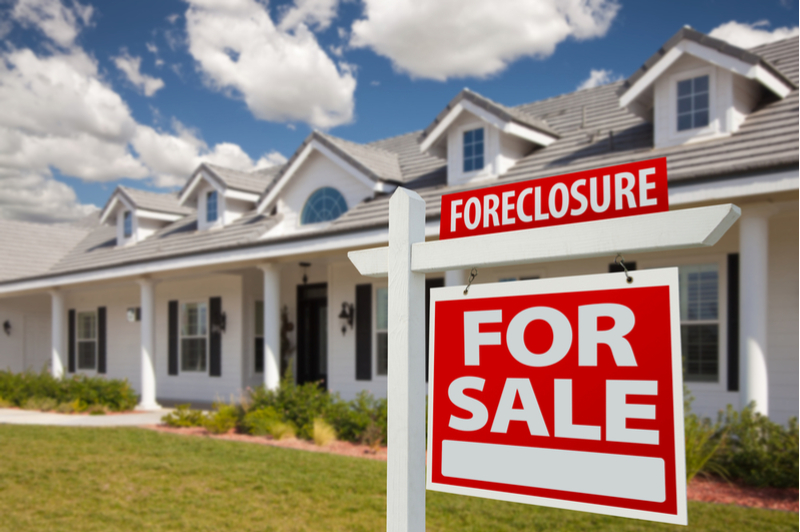
In 2007, leading publications had been reporting about how the real estate market was in a downward spiral. By fall 2008, the major financial markets had lost 30 percent of their value. The housing market came to a virtual standstill as government bailouts sought to manage the credit crisis. Foreclosures became commonplace even among long-time property owners who had taken advantage of easy credit and burgeoning equity during the years of the real estate bubble.
Search Foreclosure and Bank-Owned Homes
The structure of real estate transactions changed profoundly as the mortgage crisis took its toll. Property owners who jumped into the market as the real estate market bubble escalated were faced with a few harsh realities:
- Sellers had a difficult time trying to sell because of the glut in housing inventory.
- Property owners, especially those who bought real estate at the peak, had to accept that they were underwater, referring to the fact that they owed more than the market price for their homes.
- Buyers found it difficult to secure the necessary financing to purchase a home.
- Financial institutions imposed more stringent guidelines for home loan and mortgage processing.
For those with resources, the housing market was ripe with opportunities. Understanding the distinctive features of different types of distressed properties is the key to tapping into the extraordinary opportunities offered in a market driven by extraordinary conditions.
What Does Pre-foreclosure Mean for Properties
So, you may be wondering this: what are pre-foreclosure homes? Property owners obtain financing at the time the home is purchased. Part of the financing agreement specifies payment terms, including monthly installments and a detailed payment plan. Depending on how the loan is structured, the monthly installment would include interest payment and a portion of the principal. Mortgagors are given a grace period to make the monthly payments. Failure to make the monthly installments for at least three months will put the mortgagor in default, triggering a notice of default from the lender to the borrower. In some states, the notice of default may also need to be filed publicly, become public record, which is of great interest to investors. After a borrower has received a notice of default, the property is said to be in pre-foreclosure.
The property owner may exercise one of the following options on pre-foreclosure homes:
- Reverse the default status by paying all the missed installments plus any interest and penalties due.
- Sell the pre-foreclosure homes at market value, if said value is higher than the amount owed. Proceeds of the sale would be used to pay off the mortgage. The lending institutions may have to approve any offers on the homes whether the transaction is between buyer and owner or buyer and real estate agent.
- Request a forbearance agreement to rework the mortgage. The amount in default could be added to the loan balance subject to fees and penalties. The property would still be classified as a pre-foreclosure until the new financing package is approved.
Investing in Pre-foreclosures
For homeowners facing financial difficulties, a pre-foreclosure sale presents a chance to sell a property they can no longer afford, often for a better price than a foreclosed property. Additionally, the seller avoids getting a foreclosure record on their credit history, which can be very damaging to their credit standing and, consequently, their ability to get another housing loan.
For buyers, a pre-foreclosure means there is a unique opportunity to buy a house in good condition at a discounted price. Owners do not typically leave or abandon their property at this stage, so the home is maintained to city standards. Investors who are in the market for a quick flip favor pre-foreclosures because they usually only need basic maintenance instead of a major rehab to be market-ready.
It is also a win-win situation for lenders because they are spared the costs and responsibility of maintaining and securing the property. In many cases, the buyer may use the same lender, facilitating a seamless transfer of ownership.
Short Sale
When the house is a short sale, it means that it is being offered for sale at a price lower than what the seller owes on the mortgage. The lending institution must pre-approve the buying process, and any offers made for the real estate property for sale will be examined by the lender.
Not all pre-foreclosures may be considered short sales. This term specifically refers to properties where the lender agrees to a selling price below the outstanding loan, usually because property values have declined significantly.
Advantages of Short Sales
From the lenders’ point of view, recovering at least part of the mortgage loan is better than writing off a larger loan balance when a property is foreclosed. Lenders may reserve their right to sue the property owner for a deficiency judgment equivalent to the balance on the original loan less proceeds from the sale. The foreclosure process is lengthy, costly and resource-intensive, prompting lenders to accept the partial payments and write off the balance.
For the property owner, a short sale is not nearly as damaging to their credit standing as a foreclosure would be. In addition, the delinquent owner may be allowed to stay in the home until the sale is finalized, ensuring that maintenance and home security remain the owner’s responsibility. As such, the parties behind a short sale are motivated to work with investors interested in taking over the property.
Foreclosures
Foreclosed properties are controlled by the lending institution because the homeowner has fallen so far behind with payments that turning over the property to the bank is a palatable solution to a pressing debt problem. Owners may abandon the real estate property while others may negotiate a deed-in-lieu of foreclosure, which means they will turn over the keys to the bank and waive any claims to proceeds from selling the house. The bank seizes the property and becomes the de facto owner, answering to the homeowners’ association, maintaining and preparing the property for the public auction of foreclosed properties.
Buying Foreclosure Homes
Unlike pre-foreclosures, buyers of foreclosed homes do not have the opportunity to inspect the property beforehand. These properties are sold as is, regardless of condition and deficiencies.
Auction.com maintains a comprehensive list of foreclosed properties that are scheduled for public auction sale. The address of the property may be provided to give bidders an opportunity to do a bit of research prior to the auction, but the actual condition of the properties are unknown. Bidders are prohibited from disturbing the occupants.

Bank-owned Properties
There are several ways in which a bank may obtain properties from a borrower who is no longer able to make their payments. For example, when the homeowner agrees to a deed-in-lieu of foreclosure, the property enters the bank’s asset portfolio. Additionally, foreclosed properties not sold at the public auction are repossessed and become bank-owned. Banks aim to sell these properties at optimal prices to recoup as much of the outstanding debt as they can. Bank-owned properties, also called REOs or real estate owned, have completed the foreclosure process and the bank disposes of these properties through real estate agents and brokers, or through auctions like the ones on Auction.com.
Unlock the Profit Potential in Distressed Properties
The real estate market presents various challenges and huge opportunities for investors. Foreclosed and bank-owned properties offer an upside potential that may be realized after a bit of rehab and repair. Auction.com is the premiere source for foreclosures and bank-owned properties scheduled for sale or auction. As of September 2024, the site has a searchable listing of at least 8,500 foreclosures and 2,700 bank-owned properties. Browse these listings at Auction.com to see what is available in your area and follow instructions for placing bids or making an offer.
Search Foreclosure and Bank-Owned Homes
The information in this blog post is being provided for informational purposes only and not for the purpose of providing legal or real estate investment advice, and no liability is assumed by Auction.com, LLC. with respect to such information.


